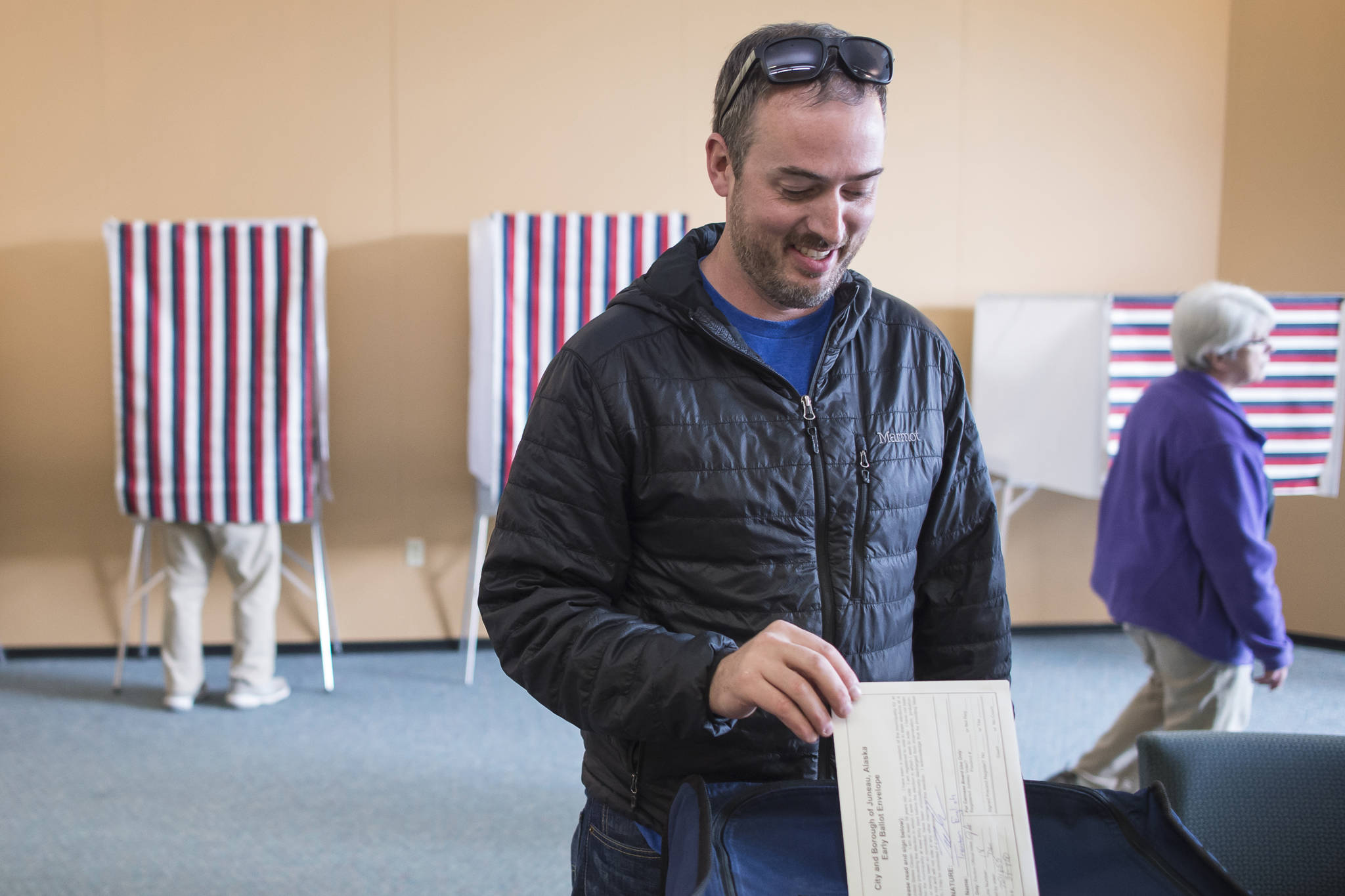Editor’s Note: The Empire is publishing a weekly column from the nonpartisan League of Women Voters leading up to this year’s municipal election, in the hopes that it will help inform voters about the process.
In our state of Alaska, the following qualifications must be met by those seeking the offices of:
United States Senator
• 30 years of age;
• citizen of the United States for 9 years;
• an inhabitant of Alaska.
United States Representative
• 25 years of age;
• citizen of the United States for 7 years;
• an inhabitant of Alaska.
Governor and Lieutenant Governor
• At least 30 years of age on the first Monday in December following the election;
• citizen of the United States for at least 7 years;
• qualified voter of Alaska;
• resident of Alaska for at least 7 years immediately preceding filing for office.
State Senator
• At least 25 years of age on the first scheduled day of the first regular session of the legislature convened after the election;
• 3 year resident of Alaska;
• 1 year resident of the district from which elected immediately preceding filing for office.
State Representative
• At least 21 years of age on the first scheduled day of the first regular session of the legislature convened after the election;
• 3 year resident of Alaska;
• 1 year resident of the district from which elected immediately preceding filing for office.
Summarized from http://www.elections.alaska.gov/
In our City and Borough of Juneau (CBJ), the following qualifications must be met by those seeking the offices of:
Assembly
• qualified voter of the municipality;
• resident of the municipality for at least 1 year immediately preceding election or appointment to office;
• a resident of the CBJ delineated district at the time of election or appointment.
• with disqualification based on 3 consecutive elected terms already served, and compensated municipal employment.
School Board
• qualified voter of the school district;
• with disqualification of residents who are employed by the Juneau School District or who are members of the Alaska Legislature.
Outlined from https://cdn.juneau.org/wp-content/uploads/2018/06/2018-Toolkit-FINAL.pdf
United States senators and representatives join Congress in Washington, D.C. and support federal legislation which could impact the state of Alaska. Congress was meant to be a check on the president and the judicial branch, and has the primary responsibility to pass laws. They can affect your lives by expanding or restricting health care, or making it more difficult for you to vote. They control federal funds for the military, major highways and infrastructure, determine how much you pay in federal taxes, and decide how much to spend on education across all states, for example.
State senators and representatives go to Juneau and create the rules, regulations and laws not explicitly laid out by the federal government. They are responsible for the state budget, which controls funding for statewide services such as police and safety, highway and ferry maintenance, additional health care services, and direct education costs, for instance. They support the governor and lieutenant governor who lay out a vision for the state.
In our local government, the Assembly (which includes the mayor) most directly impacts your daily lives in Juneau. They control the rules and regulations for housing and urban planning, and they spend the money from sales and property taxes. They help allocate state and local funding for education and public safety, and provide funding for recreation such as the pools, libraries, Eaglecrest, airport, and tourism etc. for the city. The school board sets goals for student achievement and controls the budget for our schools and teachers.
When voting, consider their views on issues important to you and keep in mind their level of influence. Whether federal, state or local — these people affect you every day. Make sure you know that the candidates are willing to listen to your views, and are not solely influenced by special interests.
The filing deadlines for the CBJ and state elections have passed. The candidates are qualified. The primary election is over. Now it is your job to register to vote and keep your voter registration information up-to-date, know in which district you live, get to know your candidates by attending forums and meetings, read and listen to media reporting, and ask the candidates the hard questions, so that by today, Oct. 2 (municipal election) and Nov. 6 (statewide election) you are ready to vote.
• Nancy Waterman is a member of the League of Women Voters Juneau. My Turns and Letters to the Editor represent the view of the author, not the view of the Juneau Empire.


